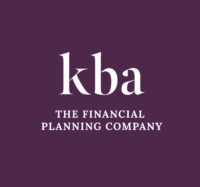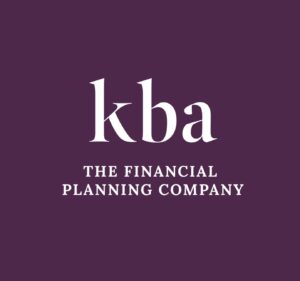The 2022/23 tax year ends on Tuesday 5 April 2023. When the new tax year starts – on 6 April – many allowances reset. So, the next couple of weeks could be your last chance to use them.
It’s always a good idea to keep track of how and when you use your annual allowances as this can help to reduce your tax liability and boost your wealth. The simple habit of keeping a record could save you money, not to mention any potential last minute stress.
With this in mind, here are five allowances and exemptions you should consider using before the end of the tax year.
1. Maximise your ISA allowance
In the 2022/23 tax year, the ISA allowance is £20,000. ISAs are tax-efficient, so making the most of this allowance is a great way to boost your finances. You don’t pay tax on the interest you earn on a Cash ISA, and Stocks and Shares ISA gains are also free of Income Tax and Capital Gains Tax (CGT).
You can spread your allowance between all the ISAs you hold. If, for example, you have both a Cash ISA and a Stocks and Shares ISA, you could pay £5,000 into your Cash ISA and add the remaining £15,000 to your Stocks and Shares ISA.
Every adult has an ISA allowance, so it’s a good idea to make sure your spouse or partner is maximising their ISAs, as well.
As with many annual allowances, you lose the chance to top up your ISA if you don’t use your whole £20,000 allowance by 5 April 2023. So, make sure you maximise your contribution before it’s too late.
2. Remember your children’s Junior ISA, too
A Junior ISA (JISA) is a great way of saving for a child or grandchild tax-efficiently. If you have children under 18, you can save up to £9,000 in the 2022/23 tax year.
Helpfully, payments made from capital fall within your small gift exemption of £250 a person each year, or your annual exemption of £3,000. However, any contribution above these thresholds could become liable for Inheritance Tax (IHT) if you die within seven years of making the payments.
Alternatively, you could set up regular payments to a JISA. If you’re able to make payments from income without adversely affecting your lifestyle, the contributions should be exempt from IHT.
When your child reaches age 18, the JISA will automatically pass to them. They can then keep saving by rolling it into an adult ISA or spend the money as they wish.
3. Top up your pension to make the most of your Annual Allowance
The Annual Allowance relates to the amount you can contribute to your pension savings while still receiving tax relief. In 2022/23, the Annual Allowance is £40,000.
Check your contribution history for the last year to see how much you have paid in. If you discover that you have any unused allowance remaining, and can afford to make additional contributions, doing so now means you won’t miss out on available tax savings.
Remember, too, that you can “carry forward” unused allowance for up to three years. So, if you have available cash to invest in your pension, be sure to check back for contributions you’ve made in the previous three years, as well.
Be aware, there may also be other allowances that might apply to you. For example, if you’ve already started drawing flexibly from your pension, contributions that can benefit from tax relief could be limited by the Money Purchase Annual Allowance (MPAA). In effect, this reduces your Annual Allowance to just £4,000.
4. Draw your dividends
The Dividend Allowance, in 2022/23, allows every individual to receive up to £2,000 in dividends without incurring tax.
If you’re a company director, you can pay yourself up to £2,000 in dividends from the business without paying any Dividend Tax. This means you can boost your income without increasing your tax liability.
Again, if you don’t use your Dividend Allowance before the end of the tax year, you will lose it. This is particularly relevant this tax year because, from 6 April 2023, the Dividend Allowance will be reduced from £2,000 to £1,000. In April 2024, it will halve again to just £500.
5. Realise capital gains
You pay Capital Gains Tax (CGT) when you sell certain assets and make a profit. This could include shares held outside an ISA, a second property, or personal possessions worth more than £6,000 (excluding your car).
In the 2022/23 tax year, you have a CGT allowance of £12,300, allowing you to make profits up to £12,300 before tax is due. However, the CGT annual exempt amount will fall from £12,300 to £6,000 in April 2023, and to £3,000 in April 2024.
So, in 2023/24, you will only be able to make profits of £6,000 on non-ISA investments – such as company shares or second homes – before CGT becomes due.
In some cases, spreading out the disposal of assets across several tax years can help reduce CGT liability. Achieving this successfully can be complicated so if you’d like some help understanding the rules and maximising your potential tax savings, please get in touch.
A financial plan can help ensure you don’t miss out on potential tax savings and give you peace of mind
It can be hard to keep on top of allowances and exemptions, and knowing how best to use them can be challenging.
Creating a financial plan could put your mind at ease and help you get the most out of your money. We can help you take advantage of this year’s allowances to reduce your tax liability and set up a plan for the coming year.
Ultimately, organising your finances now should mean you’re well-positioned to make the most of opportunities as they arise and avoid the same last-minute rush this time next year.
Get in touch
If you’d like help to make sure you take full advantage of the tax efficiencies available before the end of the current tax year or would like to get a head start on preparing for the new tax year, please get in touch.
Email contactme@kbafinancial.com or call us on 01942 889 883.
Please note
This blog is for general information only and does not constitute advice. The information is aimed at retail clients only.
The value of investments and any income from them can fall as well as rise and you may not get back the original amount invested.
An ISA is a medium to long term investment, which aims to increase the value of the money you invest for growth or income or both. The value of your investments and any income from them can fall as well as rise. You may not get back the amount you invested.
The Financial Conduct Authority does not regulate tax planning.
HM Revenue and Customs practice and the law relating to taxation are complex and subject to individual circumstances and changes which cannot be foreseen.
The content of this summary is intended for general information purposes only. The content should not be relied upon in its entirety and shall not be deemed to be or constitute advice.
While we believe this interpretation to be correct, it cannot be guaranteed, and we cannot accept any responsibility for any action taken or refrained from being taken as a result of the information contained within this summary. Please obtain professional advice before entering into or altering any new arrangement.
Approved by The Openwork Partnership on 27 February 2023.



